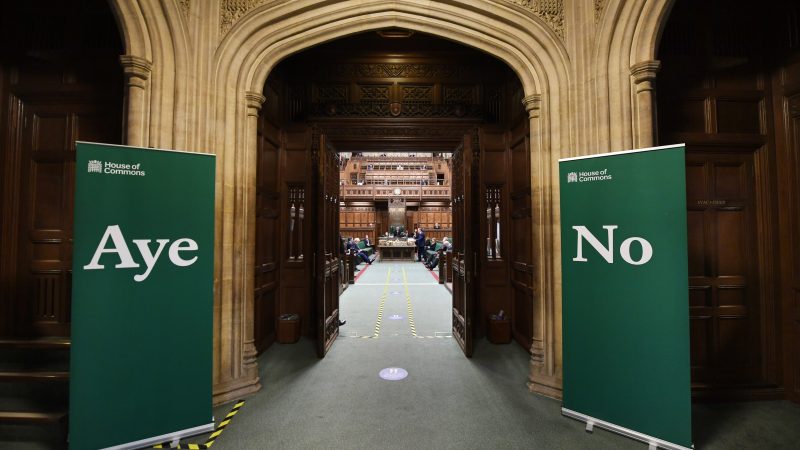
Six Labour MPs have joined with other parliamentary colleagues in a group of 24 to vote against renewing the provisions in the Coronavirus Act, including former leadership contender Rebecca Long-Bailey.
In a vote in the House of Commons this evening, MPs voted overwhelmingly to back extending the powers in the emergency legislation pushed through by the government earlier in the coronavirus pandemic.
But Long-Bailey, Dawn Butler, Kevan Jones, John Spellar, Graham Stringer and Derek Twigg defied the Labour whip to join six Tory rebels, Caroline Lucas and the Lib Dems in rejecting the extension of the legislation.
Long-Bailey warned MPs during the debate that the government promise of parliamentary scrutiny was “nothing more than a gentleman’s agreement”, and said the Act allowed “clumsy and asymmetric authoritarianism”.
Health Secretary Matt Hancock had announced that the government would start allowing Commons votes on significant national measures – held “wherever possible” before the rules are implemented – in a bid to reassure Tory rebels.
Dawn Butler issued a statement tonight to explain her vote. She said breaking the party whip “wasn’t a decision I took lightly” but she remains “deeply concerned by the sweeping powers” in the Coronavirus Act.
The Brent MP added: “I do not believe we should be handing more unchecked powers over to this Conservative government, which have shown itself not to be trusted. Voting this Act down would have given the government 21 days to propose a new framework to parliament.”
John Spellar wrote a piece for LabourList last week setting out his position on coronavirus restrictions. The MP said the task was to “work out how to minimise but, realistically, not eliminate the toll of Covid-19 on our lives”.
Comparing Covid-19 to diseases such as malaria, the founder of the party’s ‘old right’ group Labour First described the “prudent course of action” as “effective risk management rather than risk avoidance”.
Commenting ahead of the vote, Shadow Home Secretary Nick Thomas-Symonds said: “Here in the UK, we have seen over 42,000 deaths, lives altered in ways unimaginable a year ago, and our economy facing one of the worst recessions on record.
“We accept the challenge that presents, which is why we have recognised that, in a pandemic, any government needs extraordinary powers available, and why, with a heavy heart, facing this highly unsatisfactory situation of an all-or-nothing motion, we will not block its passage.”
Speaker Lindsay Hoyle prevented a Tory rebellion by not selecting amendments to the coronavirus legislation this afternoon, instead delivering a strong rebuke by accusing the government of showing “contempt” to the House of Commons.
Backbench Tory MPs had been set to defy ministers by voting in favour of the Brady amendment, which would have forced the government to allow parliamentary votes on future coronavirus-related restrictions.
The Speaker took the opportunity to criticise the “totally unsatisfactory” way in which the government has exercised its powers during the Covid-19 crisis, and he urged ministers to “rebuild trust” with the House of Commons.




More from LabourList
‘Security in the 21st century means more than just defence’
‘Better the devil you know’: what Gorton and Denton voters say about by-election
‘Unity or division’: Starmer’s message to voters in Gorton and Denton